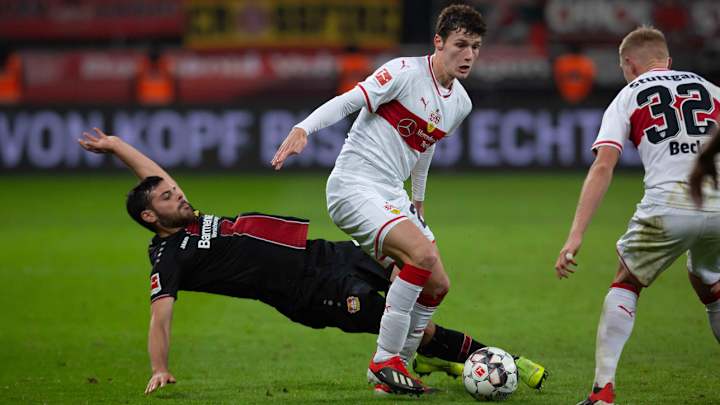The Transfer Window and Its Increasing Amount of Conflicts of Interest

On the final day of last season in Serie A, Lazio defender Stefan De Vrij fouled Mauro Icardi, conceding a penalty from which Inter equalized. Lazio fell apart. In the three minutes that followed, Lazio captain Senad Lulic was sent off and Matias Vecino headed a winner for Inter who, as a result, climbed above Lazio to take Serie A’s fourth Champions League qualification place. This was good news for De Vrij, who had already signed for Inter for the following season. There is no suggestion that the Netherlands international did anything dishonest, or was anything other than professional, but it was an incident that highlighted the potential complications when a player knows he will be leaving his club for another in the same competition prior to the end of the season.
That, perhaps, is an extreme example, but there are numerous ways in which the integrity of the game is challenged by the transfer market as it now operates. French fullback Benjamin Pavard, for instance, was signed by Bayern Munich from Stuttgart this month but will not join the Bundesliga champion until the summer. This wasn't an instance in which Pavard was out of contract at season's end and agreed to the pre-transfer six months out, as is standard practice. His Stuttgart contract was set to run until 2021.
In the meantime, that gives him half a season in which he can theoretically help his future employers while playing for a different club. As it happens, with Stuttgart struggling to ward off relegation and Bayern now fairly secure in the Champions League slots, it’s difficult to envision a situation in which the interests of Stuttgart and Bayern are aligned (other than the upcoming game between the two sides on Jan. 27). But another De Vrij situation could easily occur were Bayern to pre-sign a player from, say, RB Leipzig, whom it meets on the penultimate weekend of the season.
Given the arms race among top clubs, it's no wonder they're trying to beat one another to the signature–or pre-signature agreement–of top talent, but the escalation of advanced signings has begun to get out of hand.
WILSON: Bielsa Brilliant, Defiant in Addressing Spying 'Scandal'
And then there are loan deals, which have become a particularly acute problem as certain elite clubs stockpile young talent and farm it out. With the signing of Christian Pulisic, loaned back to Borussia Dortmund until the end of the season, Chelsea took its tally of players out on loan to a barely credible 44.
Of those, only Kenedy (at Newcastle United) and Kurt Zouma (at Everton) are at Premier League clubs, but even that is problematic. The convention is that loaned players do not play against their parent club, to avoid the issues that could come were, say, Kenedy to miss a penalty against Chelsea or Zouma to score an own goal in its favor. But even that raises questions about the integrity of the league. Kenedy and Zouma have both made 18 appearances in the league this season: why should Chelsea get to play opponents weakened by the absence of first-team regulars?
Last week there was talk of Chelsea recalling forward Tammy Abraham from his loan at the Championship side Aston Villa and sending him instead to Wolverhampton Wanderers of the Premier League. Wolves have had a habit of dominating games this season without necessarily winning them; chance conversion has been a major issue, and so they would logically benefit from an in-form striker (Abraham, an Under-20 World Cup winner with England, has scored 16 goals in 21 league matches this season). Wolves are not a direct rival, but for Chelsea potentially helping them take points off Chelsea’s rivals for Champions League qualification is understandably appealing.
ECHEGARAY: Where's it Gone Wrong for Coutinho at Barcelona?
FIFA is already considering legislation to limit the number of players a club can loan out, largely to prevent the stockpiling of talent that benefits the big clubs often at the expense of players. There is talk of a maximum of six or eight or, perhaps more feasibly, three or four but with an exemption for home-produced players under the age of 21. After all, the loan system was initially designed to help clubs with an immediate short-term vacancy (for instance, if a club has three center forwards all injured, it needs cover without having to shell out millions of dollars for a player it may not need a month or two down the line). The exemption makes sense, because there is already an issue with playing time for promising young players; it does nobody any good to limit that further or to disincentivize clubs from seeking to develop their own talent.
But the wider issue is loans within the same division (which is what the Pavard deal amounts to through the end of the season). A player cannot be expected to serve two different masters. There will always be complications, particularly with, say, players in the final year of their contract who have every right to seek a new club before their existing deal has expired, and in practical terms there is no evidence yet of any wrongdoing.
But sport must not only be fair but be seen to be fair–and that means, as far as possible, that loan deals to other clubs whose performances have a direct impact on the parent club must be discouraged.

An accomplished author of multiple books, Jonathan Wilson is one of the world’s preeminent minds on soccer tactics and history.